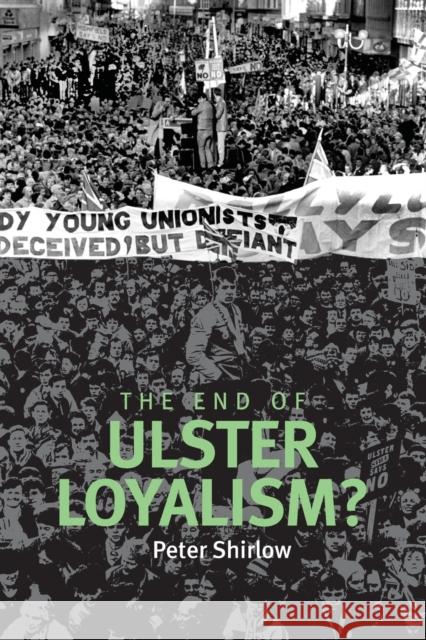End of Ulster Loyalism? » książka
End of Ulster Loyalism?
ISBN-13: 9780719084768 / Angielski / Miękka / 2012 / 256 str.
End of Ulster Loyalism?
ISBN-13: 9780719084768 / Angielski / Miękka / 2012 / 256 str.
(netto: 98,15 VAT: 5%)
Najniższa cena z 30 dni: 95,39
ok. 30 dni roboczych.
Darmowa dostawa!
The end of Ulster loyalism? explores the dynamics and divisions within paramilitary groups since the mid-1970s. It communicates a history of transition and at times regression within the Ulster Volunteer Force, Ulster Defence Association, Loyalist Volunteer Force and Red Hand Commando. It, despite contrary public opinion, details and explains the nature of Loyalist conflict transformation. A key model of transition that is relevant to arenas beyond Northern Ireland. However, it also details the internal and external impediments and violence from within regressive elements, the wreckers and spoilers, who aimed to undermine positive peace-building. The book also discusses the nature and extent of loyalist violence and provides a rarely heard Loyalist voice regarding State-led collusion. It locates Loyalist ideas and opinions that have been largely invisible and highlights how an extensive element of positive Loyalist renewal has been purposefully suppressed and unmentioned. In examining both positive and regressive loyalism this book creates a holistic and honest analysis of groups emerging, however awkwardly, out of violence and in so doing dispels taboo subjects and assertions. From violence to the location of Loyalist transition, through internal feuding and towards restorative justice, community leadership and mural re-imaging this book asserts a definite and roust examination of loyalism future. It is a key text for any student of politics, criminology, human geography and conflict and conflict transformation and is particularly relevant to the scholarship of pro-State groups who are infrequently considered in academic deliberations. A book of both hope and despair that emerges from a destabilising past and a yet-to-be-decided future.











